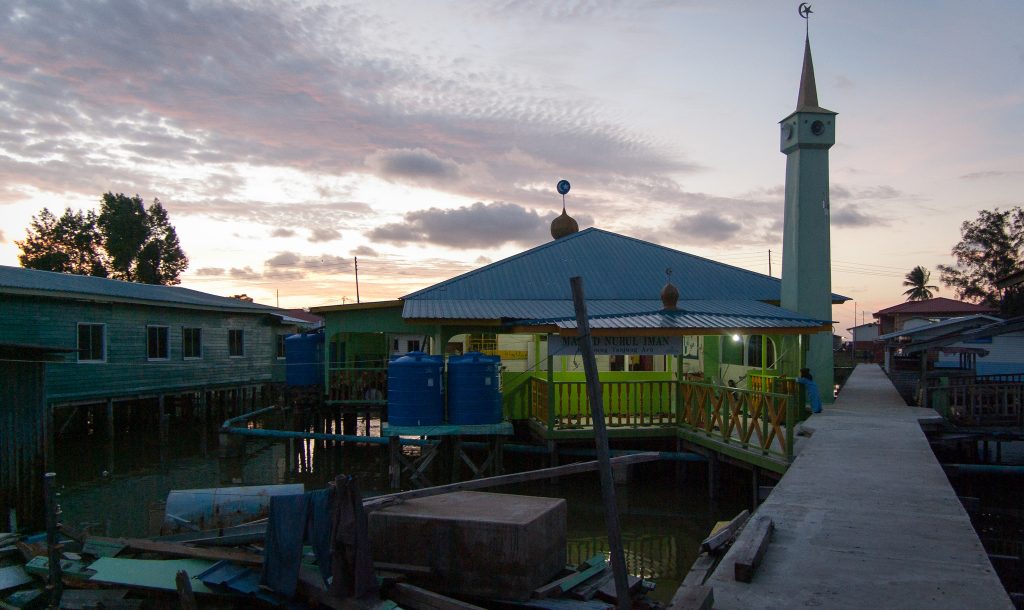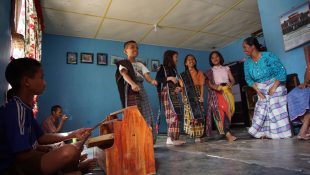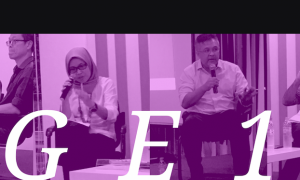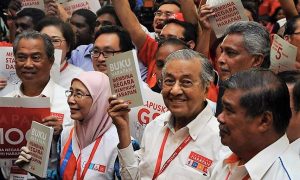“Aku nak Islam lama balik. Bukan Islam ini.”
I was in Sabah recently, right smack in a small village of 2,000 people. (I am not naming the village because I feel protective about it.) I was there to assess the socio-economic situation of the village, and after a few days of being viewed as a visitor, my newly found friends finally felt comfortable enough to let their guard down.
We were at the anjung of the homestay I stayed in. A faint scent of the sweet but pungent smell of the palm oil that had muddied the village river drifted over from time to time. The village was quiet; an occasional clanging of kitchen utensils broke up the stillness of the night.
The homestay owner had family visiting her. The conversation was banal at first, and like all conversations: family illnesses, ghosts, the rising cost of living peppered the air. A short acknowledgement about a friend’s death stirred the hornet’s nest: the women became very angry.
The matriarch of the family looked hard at the homestay owner, who turned to me to explain.
“We orang sungai have always been Muslim,” she said. “And like the Malays of Semenanjung, we have our customs. The thing is, orang semenanjung are intent on destroying us.”
The arrival of ulama from the peninsula over the last few years in Sabah, and especially in the interiors, is tearing apart the social fabric of the villagers.
Young, fresh graduates from Al-Azhar University and other Islamic colleges, but with little life experience, these young men come to Sabah with the intent of righting the villagers.
“Dulu, we could wear henna during weddings, but now they say it is haram. We’ve always prayed, but now these tabligh, they come to our houses to check that we pray and tell off our men for praying at home, they must pray in the surau.
“Friday prayers, yes, men must go but when it’s not Friday, they can pray at home too. So why is it wrong now?”
When there is a death in the village, they have a feast, a kenduri, so the whole village comes as one, to grieve.
“These tabligh, they tell us it’s wrong. But to us it is not wrong—the food goes to people who can’t afford to buy food. The funeral unites us as a village.”
In fact, the homestay owner and her family told me they practised many things that united the village: mass prayers to avoid misfortune, illness and so on; prayers for those leaving the village to seek their fortunes elsewhere.
“Kamu tau tak, sekarang semua ini haram! Tabligh Semenanjung ni pandai—mereka cakap dengan orang muda kampung ini. Lepas tu, satu keluarga pecah, berkelahi. Sebab orang muda kata orang tua mereka jahil. Orang tua pula marah, ini adat resam kami. Apa yang syiriknya?”
The matriarch glared at me. “I will fight this type of Islam to the death. Islam Semenanjung merosakkan hidup kami di sini.”
Almost everyone I met in the village, male and female, was disturbed by peninsular politics. The “Allah” issue and “satu Malaysia … in Sabah we have always been united.” They thought their counterparts in the peninsula odd: the latter are supposed to be more educated, wealthier and sophisticated than they are, and yet they fought over petty things.
What is refreshing (or odd, whichever side you are on) is that the women want change but the men of the village acquiesce to the ulama’s demands. The women are bewildered and disheartened: surely the men want to protect their ways and traditions as well?
“The men use this type [of Islam] because it is convenient for them. If their wives erred, they’d quote what the tabligh said. If they want to take on another wife, they’d say that it’s all right by the Qur’an.”
But polygamy is a small issue. The villagers come from a communal culture whereby the whole village would be involved if there was a misfortune, or a social problem arises. If a child misbehaved, the clan would sit and confer. They would also hold mass prayers.
“Al-Azhar kak,” one of the women told me. “We can’t fight with educated people, we are orang kampung.”
“We give it two generations. Then we won’t be who we are.”
• • • • • • • •
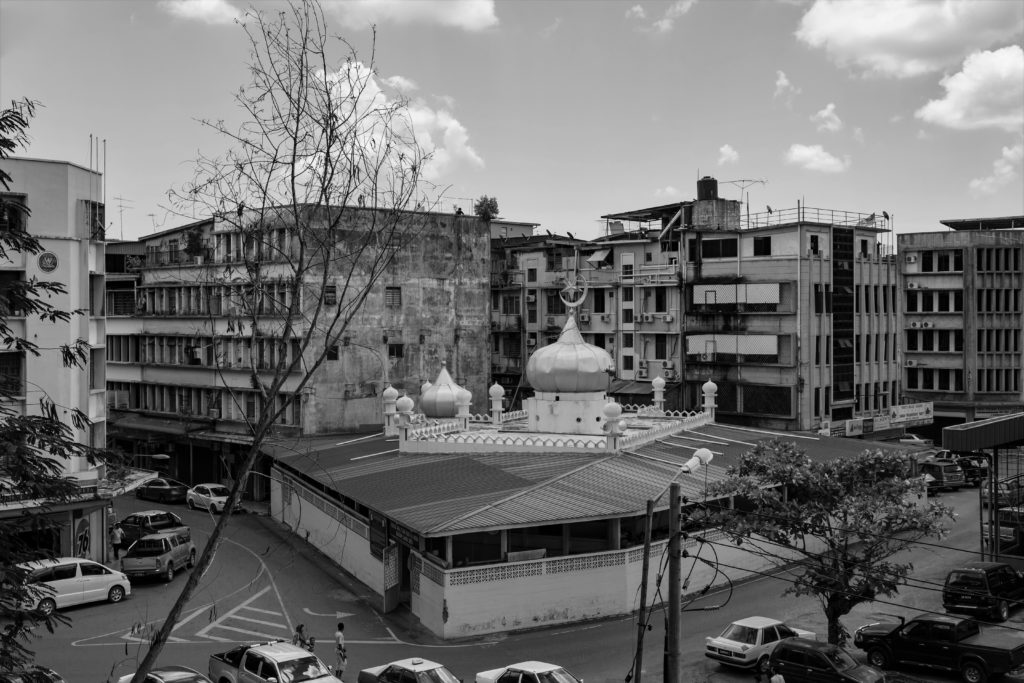
Mosque in Lahad Datu, Sabah
• • • • • • • •
I learned three things from my new friends from my short stay in Sabah. One is that male proboscis monkeys have permanent erections, and that their noses do match the sizes of their penises. In the human male, however, the size of the nose does not necessarily match with his apparatus and one may end up disappointed.
Second, because Muslims eat only what is halal, wildlife in Sabah is somewhat more protected and abundant in Muslim areas as it doesn’t end up as dinner. And breakfast, lunch and tea.
Third, I was told that the ikan tamban that washed up on the beaches of Lahad Datu in 2013 were actually and truly the militants of the Royal Security Forces of the Sultanate of Sulu and North Borneo. They had gone to the bomoh to change into fish, to re-enter Sabah again.
“So we caught them! We killed them, and fried them, and ate them up,” one of the villagers crowed at me.
“We ate up our enemies!”
Where I was, and will be heading to again, may be an example of a village in Sabah, or a unique example of how progress is muddling a simple, generous community.
As recently as 15 years ago, they were still small-time farmers, dependent on the jungle and the river for their livelihood. Today, many own cars and many go to school, and yet as many are illiterate, and the village has no access to clean, fresh water. Ironically, the village is right beside the river.
The men, at one point, stood up for the village and their needs, but have been browbeaten so many times that they are now tired and meek. The women are hardier, but frustrated. How do they manage their families?
They are poor and yet not poor. They are educated but not as sophisticated as their counterparts in Sandakan or Kota Kinabalu. They are in a state of flux. They want to be modern too, but the trappings of modern life jar with their very nature: they are soft-spoken and perhaps too gentle.
An earlier article I wrote sparked a small storm and touched a number of Sabahans, who have told me that they are tired of interference from the peninsula.
Let them decide what, who, when and how they wanted things, especially religion, to be. Amid the noise were also dissenting voices that asked, and had every right to, why not? What was wrong with proselytising and teaching Sabahan Muslims the true, correct Islam?
As an amateur and independent researcher anthropologist, I straddled two boxes. The conditioned Muslim self could see where conservatives came from, whereas the writer/amateur researcher agreed that the lives of a people should have little interference unless their human rights and livelihoods are challenged.
As a Muslim, we are urged to menegakkan amar maaruf dan mencegah nahi mungkar, a reader wrote to me. “I hope you will be able to motivate the Sabah ladies about the importance of finding knowledge. And to encourage them to motivate their daughters about the values of knowledge.
“They will be different not through the latest fashion, how skinny they are, their make-up or how much they can attract boys (generally not only in this village) but how they value themselves. Most of the women I know personally want the best in terms of education facilities for their children but they are lacking dedicated teachers and resources for revisions.”
But she admitted that she was confused by the article. Surely it was the duty of righteous Muslims to correct their brothers and sisters if they erred?
Another participant in the discussion disagreed with the above view. “I believe pendakwah and in this case tabligh need to be sensitive about local customs and traditions, if they are not from Sabah. My ustazah, for example, is very mindful of this. She is from an urban area in Selangor and a graduate in banking, and now married to a Sabahan. She told us once that many customs are different here, and that it is an eye-opener for her.
“Personally, there is nothing wrong with using henna as mentioned in this story, or to have hantaran or certain rituals rooted in the respective traditions of Sabah’s diverse community, for as long as they don’t clearly go against the teachings of Islam.
“I feel it would be more beneficial for tabligh or any pendakwah to point out that akad nikah is important, and not the ceremonies that come with it in the event that a couple puts off marriage due to financial reasons.
“Instead of falling into haram due to the long wait, it is better to hasten the nikah. I believe Malaysians regardless of where we are located, what our roots are and whatever religion or customs we follow should be respectful of one another.
“More so when dealing with people from rural areas, who may not have as much exposure. That way, there will be less suspicion and hatred.” Shortly after my column was published, an article followed, with the headline, “Sabah Christians claim bribed, tricked into Islam”. The muted hysteria that followed had many angry, and sadly the story became a convenient target for blame and accusations. More articles followed in other media. I can imagine the anguish, but I also see that it’s not just about being tricked into a faith unwittingly. It’s about poverty and illiteracy, and they have been hijacked and taken advantage of by parties with a very suspicious agenda. Islam, sadly, is again being used as a tool by a minority that wants dominance. Its grace and beauty are hidden by ignorance and politics.
Two sisters have been my educators about their state, Sabah, all these years. Tread very carefully on the issues, and speak truth, they advise.
Islam in Sabah is used as a tool to create distrust and divide communities and families. Religion used to be a private affair for Sabahans with lots of intermarriages between Muslims and Christians.
Their children were allowed to make their own religious choices and it’s very confusing for the new generation why something that was accepted 50 years ago is now considered haram.
“The sense of anger against Semenanjung Muslims is caused by the fact that the Semenanjung ustaz coming over are polarising the young Sabahan Muslims by telling them not to mix with non-Muslim relatives and friends, and to be more wary about the places they eat in and go to.
“Things used to be based on trust—makan places that used to just have signs saying ‘serve no pork’ now need giant halal logos, and every week, nasty rumours will spread about these places. Which goes to show what little trust there is now between the Muslim and non-Muslim populations in Sabah.”
‘Religion’ and ‘belief’ in Indonesia: what’s the difference?
In insisting that “animist” faiths be given a lower status than “religion”, Islamic leaders ignore how the false divide between them was constructed in the first place.
This also has to do with the fact that Sabahans have been brainwashed into having such bad self-confidence, they just stopped asking.
“What people ignore is that the history of Islam in Sabah developed differently compared to Semenanjung. You have two large sultanates here—Brunei and Sulu—who both had their own pendakwah from the Middle East running around and educating people. So how do we know which form of Islam is ‘older’ or ‘purer’ or more ‘correct’? The Sulu, Brunei or the Malay Sultanate?
“By the way, if you dig little deeper into some communities, they say that the practice of henna came with the Middle Eastern and Pakistani Muslim clerics. Jadi masih haram ke?”
Good luck, they wished me. It looks like Sabah will need it, as well as me.
 Facebook
Facebook  Twitter
Twitter  Soundcloud
Soundcloud  Youtube
Youtube  Rss
Rss 